RTX 5090 Review – Is This the Next GPU King?
The NVIDIA RTX 5090 was released on January 30 this year. As the flagship of the next-gen GeForce lineup, the RTX 5090 raises the bar with high performance, cutting-edge technologies, and a big leap in both speed and efficiency.
Built on NVIDIA’s latest architecture, Blackwell, this card is packed with more CUDA cores, more VRAM, and faster memory bandwidth than ever before. So, the RTX 5090 could be the next go-to powerhouse for gamers, 3D artists, or AI developers.
But with great power often comes a high price, both in dollars and in watts. The question is: Is the RTX 5090 truly a generational leap, or just an incremental upgrade? Let’s break down its performance and see how it stacks up.
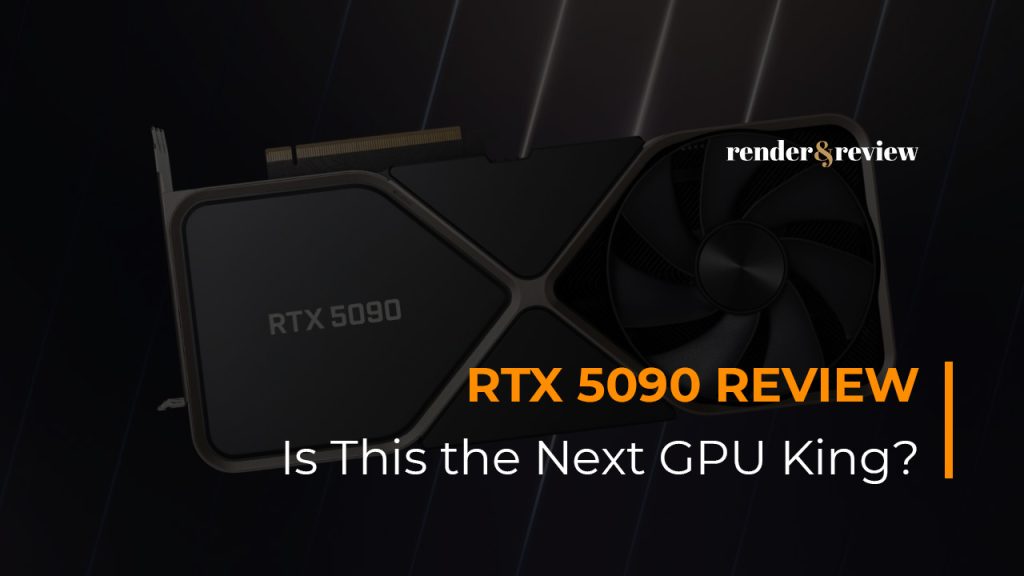
Table of Contents
RTX 5090 Specifications
NVIDIA said that the RTX 5090 is the most powerful GeForce GPU ever created, delivering game-changing experiences to 3D creators and gamers. With unrivalled AI capability, it promises to manage the most complex models and toughest creative demands. It can run games with the lowest latency and full ray tracing.
How can it do all that? Let’s take a look at RTX 5090 specs.
The specs include GPU Engine, memory, technology support, display support, card dimensions, thermal and power.
1. GPU Engine Specs
| NVIDIA CUDA Cores | 21760 |
| Shader Cores | Blackwell |
| Tensor Cores (AI) | 5th Generation 3352 AI TOPS |
| Ray Tracing Cores | 4th Generation 318 TFLOPS |
| Boost Clock (GHz) | 2.41 |
| Base Clock (GHz) | 2.01 |
2. Memory Specs
| Standard Memory Config | 32 GB GDDR7 |
| Memory Interface Width | 512-bit |
3. Technology Support
| NVIDIA Architecture | Blackwell |
| Ray Tracing | Yes |
| NVIDIA DLSS | DLSS 4 Super Resolution DLAA Ray Reconstruction Frame Generation Multi Frame Generation |
| NVIDIA Reflex | Reflex 2 Low Latency Mode Frame Warp (Coming Soon) |
| NVIDIA Broadcast | Yes |
| PCI Express Gen 5 | Yes |
| Resizable BAR | Yes |
| NVIDIA App | Yes |
| NVIDIA Ansel | Yes |
| NVIDIA FreeStyle | Yes |
| NVIDIA ShadowPlay | Yes |
| NVIDIA Highlights | Yes |
| NVIDIA G-SYNC | Yes |
| Game Ready Drivers | Yes |
| NVIDIA Studio Drivers | Yes |
| NVIDIA Omniverse | Yes |
| RTX Remix | Yes |
| Microsoft DirectX 12 Ultimate | Yes |
| NVIDIA GPU Boost | Yes |
| NVIDIA NVLink (SLI-Ready) | No |
| Vulkan 1.4, OpenGL 4.6 | Yes |
| NVIDIA Encoder (NVENC) | 3x Ninth Generation |
| NVIDIA Decoder (NVDEC) | 2x Sixth Generation |
| AV1 Encode | Yes |
| AV1 Decode | Yes |
| CUDA Capability | 12.0 |
| VR Ready | Yes |
4. Display Support
| Maximum Digital Resolution | 4K at 480Hz or 8K at 165Hz with DSC |
| Standard Display Connectors | 3x DisplayPort, 1x HDMI |
| Multi Monitor | up to 4 |
| HDCP | 2.3 |
5. Card Dimensions
| Length | 304 mm |
| Width | 137 mm |
| Slot | 2-Slot |
| SFF-Ready Enthusiast GeForce Card | Founders Edition Yes Varies by manufacturer |
6. Thermal and Power Specs
| Maximum GPU Temperature (in C) | 90 |
| Total Graphics Power (W) | 575 |
| Required System Power (W) | 1000 |
| Supplementary Power Connectors | 4x PCIe 8-pin cables (adapter in box) OR 1x 600 W PCIe Gen 5 cable |
RTX 5090 Performance Benchmarks
Gaming Performance
The RTX 5090 is an absolute beast when it comes to gaming.
Below is the performance benchmark by NVIDIA.
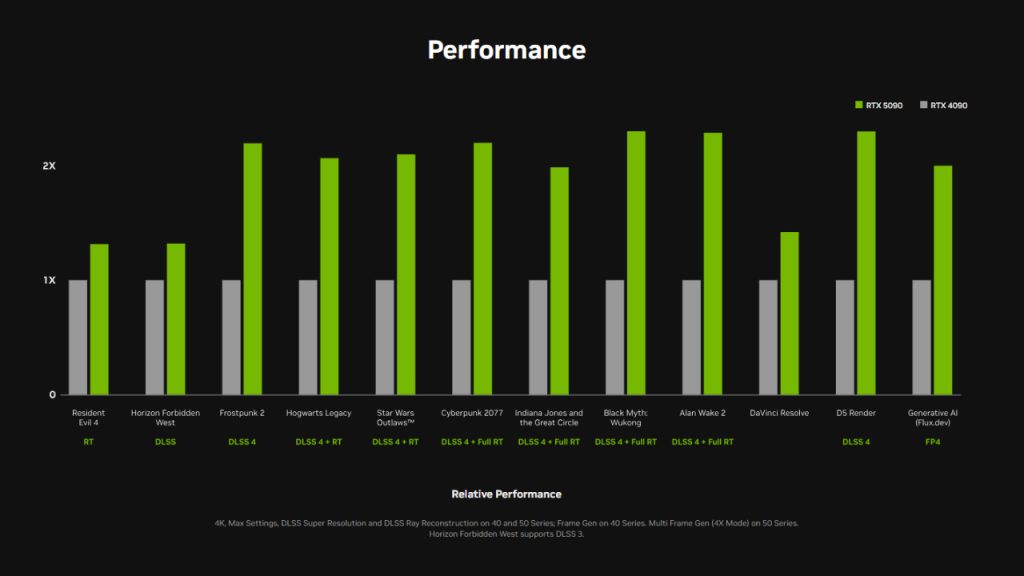
RTX5090 vs RTX 4090 Performance by NVIDIA
In 4K resolution, max settings, DLSS 4 and full ray tracing, it doubles the performance of RTX 4090 in modern AAA titles like Cyberpunk 2077, Indian Jones and the Great Circle, Black Myth: Wukong, and Alan Wake 2.
However, the performance boost is lower in testing by hardware reviewers. According to PCWorld, the RTX 5090 improves gaming performance by approximately 30% over the RTX 4090.
According to Techspot, RTX 5090 is just about 27% faster than the RTX 4090 at 4K. It said that you receive the illusion of smoother gameplay, although with potential graphical glitches, but no actual benefits from higher frame rates, such as reduced input latency. Depending on the game and settings, the RTX 5090 could be 40 – 50% quicker than the RTX 4090. However, when aiming for high frame rates, the difference is often significantly smaller.
3D Rendering Benchmarks
In creative workloads, the RTX 5090 shines.
According to NVIDIA, in 4K resolution, max settings, and DLSS 4, the RTX 5090 doubles the performance of RTX 4090 in D5 Render.
According to Puget Systems, the RTX 5090 performs well in video editing and motion graphics, with increases ranging from 10 to 20% overall.
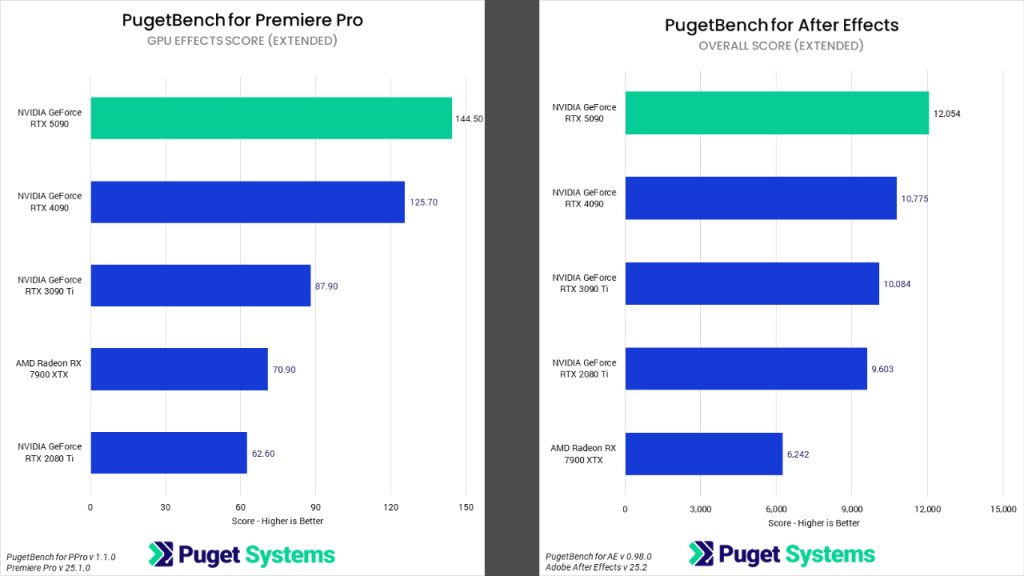
Video Editing (Adobe Premiere Pro) and Motion Graphics (Adobe After Effects) benchmarks by Pudget Systems
In sub-tests where the workload is predominantly GPU-bound, up to 35% performance gains over the previous-generation 4090. In both real-time and offline rendering workloads, the 5090 extends its edge over prior generations of GPUs. It outperforms the 4090 by 17% in Unreal Engine, 38% in V-Ray, and 35% in Blender.
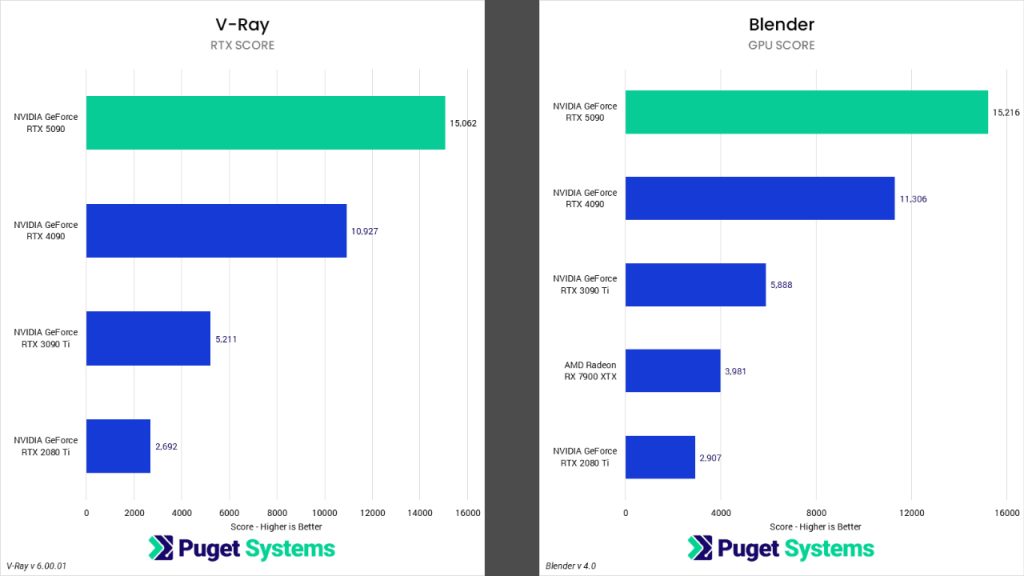
3D Rendering (V-Ray and Blender) benchmarks by Pudget Systems
AI and Machine Learning Tasks
For AI/ML professionals, the RTX 5090 offers noticeable acceleration in training and inference tasks.
In Nikolay Falaleev’s tests, the generational gap between RTX 4090 and RTX 5090 is approximately 44% in Computer Vision jobs and 72% in Natural Language Processing jobs.
Other tests conducted by Kb Bohara demonstrate that the RTX 5090 improves ML workloads by 28 – 36% and accelerates AI image generation by up to 4 times.
RTX 5090 Price
Here are a few options for buying GeForce RTX 5090:
- Gigabyte NVIDIA GeForce RTX5090 Windforce Overclocked: $2,399.99
- Gigabyte NVIDIA GeForce RTX5090 Aorus Master: $2,749.99
- Gigabyte NVIDIA GeForce RTX5090 AORUS XTREME WATERFORCE: $2,809.99
- Gigabyte NVIDIA GeForce RTX5090 XTREME WATERFORCE: $2,859.99
- ZOTAC Gaming GeForce RTX5090 AMP Extreme Infinity: $2,499.99
- ASUS GeForce RTX5090 ROG Astral: $2,749.99
- ASUS GeForce RTX5090 ROG Astral Overclocked: $3,359.99
- ASUS GeForce RTX5090 Astral LC Liquid Cooled: $3,719.99
RTX 5090 vs RTX 4090 / RTX 3090 / AMD Radeon Competitors
With every new generation of GPUs, the inevitable question arises: How much better is it than the last one? And more importantly, how does it stack up against the competition?
| RTX 5090 | RTX 4090 | RTX 3090 | RTX 2080Ti | |
| NVIDIA Architecture | Blackwell | Ada Lovelace | Ampere | Turing |
| DLSS | DLSS 4 | DLSS 3 | DLSS 2 | DLSS 2 |
| CUDA Cores | 21760 | 16384 | 10496 | 4352 |
| AI TOPS | 3352 | 1321 | 285 | 114 |
| Tensor Cores | 5th Gen | 4th Gen | 3rd Gen | 2nd Gen |
| Ray Tracing Cores | 4th Gen | 3rd Gen | 2nd Gen | 1st Gen |
| NVIDIA Encoder (NVENC) | 3x 9th Gen | 2x 8th Gen | 1x 7th Gen | 1x 7th Gen |
| NVIDIA Decoder (NVDEC) | 2x 6th Gen | 1x 5th Gen | 1x 5th Gen | 1x 4th Gen |
| Memory Configuration | 32 GBGDDR7 | 24 GBGDDR6X | 24 GBGDDR6X | 11 GBGDDR6 |
| Memory Bandwidth | 1792 GB/sec | 1008 GB/sec | 936 GB/sec | 616 GB/sec |
| Release date | Jan 2025 | Oct 2022 | Sep 2020 | Sep 2018 |
| Launch Price | $1,999 | $1,599 | $1,499 | $1,199 |
From above, we can conclude. When it comes to raw power, the NVIDIA GeForce RTX 5090 stands at the top of the GPU hierarchy in 2025, outperforming previous generations.
Compared to its predecessor (RTX 4090), the RTX5090 GPU has:
- 32% more CUDA cores.
- Over 2.5 times AI TOPs.
- 33% more VRAM.
- 78% more memory bandwidth.
Benchmarks in the previous section show that the 5090 typically improves performance by 20 – 40%, depending on the workload.
On the AMD side, AMD’s RX 7900 XTX never quite caught up to the RTX 4090. So naturally, it does not come close to competing with the RTX 5090 either — at least not in raw power or high-resolution performance.
Is the RTX 5090 Worth It?
In summary, RTX 5090 has pros and cons.
Pros
- Unmatched performance for gaming, creation, and AI
- Powerful ray tracing and AI acceleration
- Large 32GB GDDR7 VRAM
- Compact two-slot design
- Efficient cooling
Cons
- Excessively pricey
- Power-hungry: demands a high-wattage PSU
- Maybe overkill for casual users or 1080p gaming setups
It is obvious that the Nvidia RTX 5090 is the best GPU on the market right now. It offers exceptional performance for gaming, creation, and AI applications that few other cards can match. However, this card is prohibitively pricey, requires an absolute appetite for watts, and may be overkill for casual users.
So, the big question is “Who Should Buy the RTX 5090?”
We think your decision should ultimately come down to your specific needs, workflow, and budget. You should consider this card if you:
- Work with 3D rendering, simulations, or complex VFX pipelines.
- Need top-tier ray tracing and DLSS support for 4K gaming.
- Train large AI models or work with compute-heavy applications.
- Want future-proofing for the next 3–5 years.
- … and of course, if you have an unlimited budget.
FAQ: NVIDIA GeForce RTX 4090
1. Is RTX 5090 good for gaming?
Yes. The RTX 5090 is one of the best gaming GPUs in 2025. It delivers exceptional performance at 4K with ray tracing. It can handle the most demanding AAA titles with ease, and is well-suited for high refresh rate monitors and multi-monitor setups.
2. Can the RTX 5090 run 8K?
Yes, the RTX 5090 is capable of running games and creative workloads at 8K resolution. The GPU can handle 8K gaming, particularly when paired with features like DLSS 4 to boost performance. For creative professionals, it’s a strong option for ultra-high-res workflows.
3. What power supply do I need for RTX 5090?
RTX 5090 power consumption is 575 watts, and NVIDIA recommends a 1,000-watt PSU for optimal performance. So you will need a 1000W or higher PSU with a high-efficiency rating (80+ Gold or Platinum). It’s also important to check if your PSU includes the necessary PCIe Gen 5 16-pin connector (12VHPWR/12V-2×6) or if you’ll need a 16-pin adapter.
4. Does it support DLSS 4 or newer technologies?
Yes, the RTX 5090 supports the latest version of NVIDIA technologies, including DLSS 4 with Multi Frame Generation, Reflex 2 with Frame Warp. These provide smarter upscaling, better frame generation, and improved ray tracing performance, making it easier to enjoy ultra-smooth visuals.
5. Is it worth upgrading from 4080/4090?
That depends on your needs. If you’re upgrading from an RTX 4080 or 3090, the performance leap is more noticeable, especially for 4K gaming, rendering, and AI workloads. Upgrading from an RTX 4090 offers a smaller jump (around 20 – 40%), so it’s more appealing to professionals who rely on the latest hardware for time-sensitive tasks. For most users, the RTX 4090 remains a powerful and capable GPU, but if you’re looking for maximum performance and future-proofing, the RTX 5090 is a compelling upgrade.
See more:



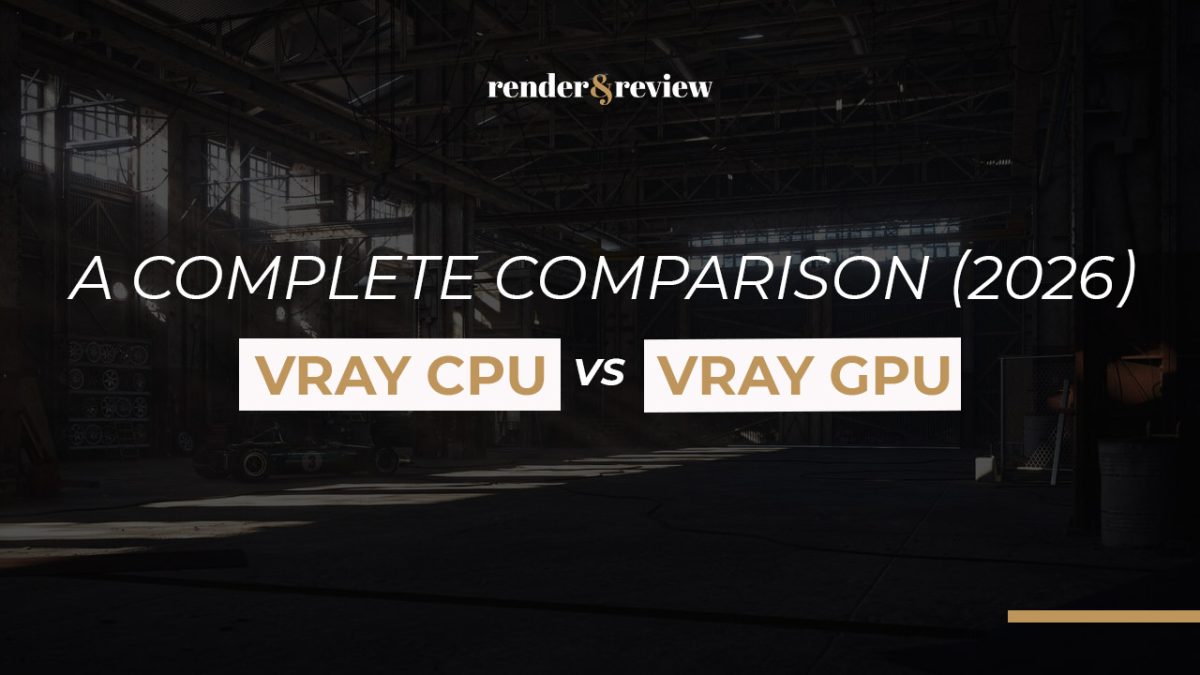
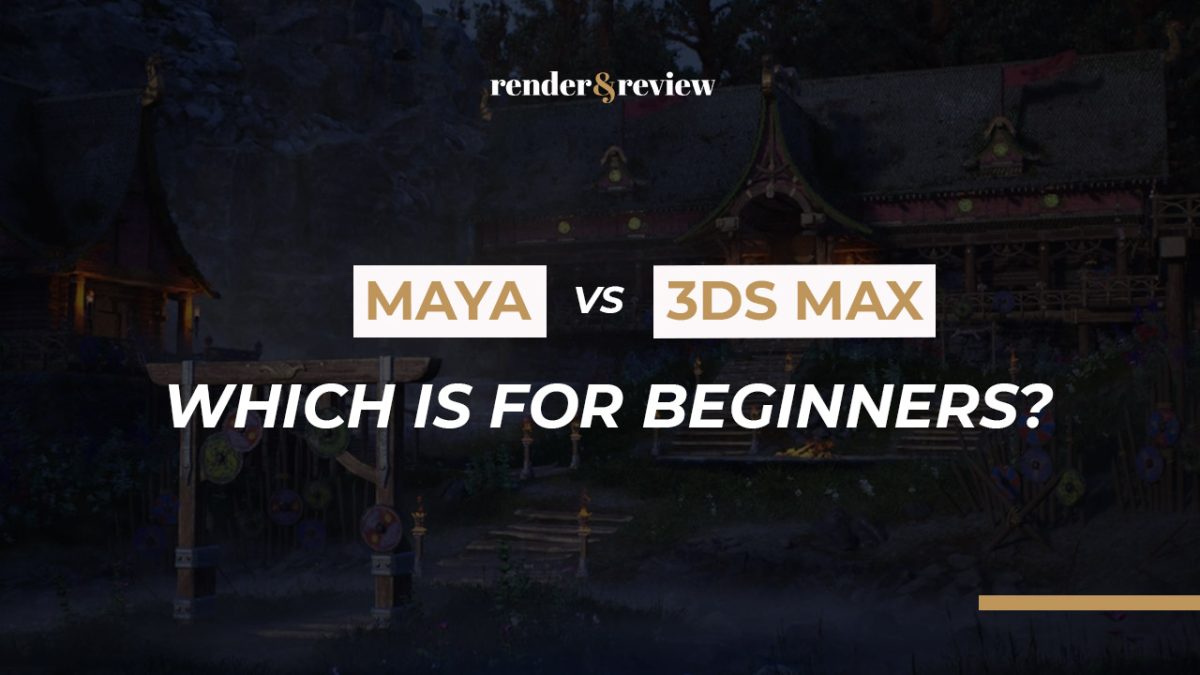


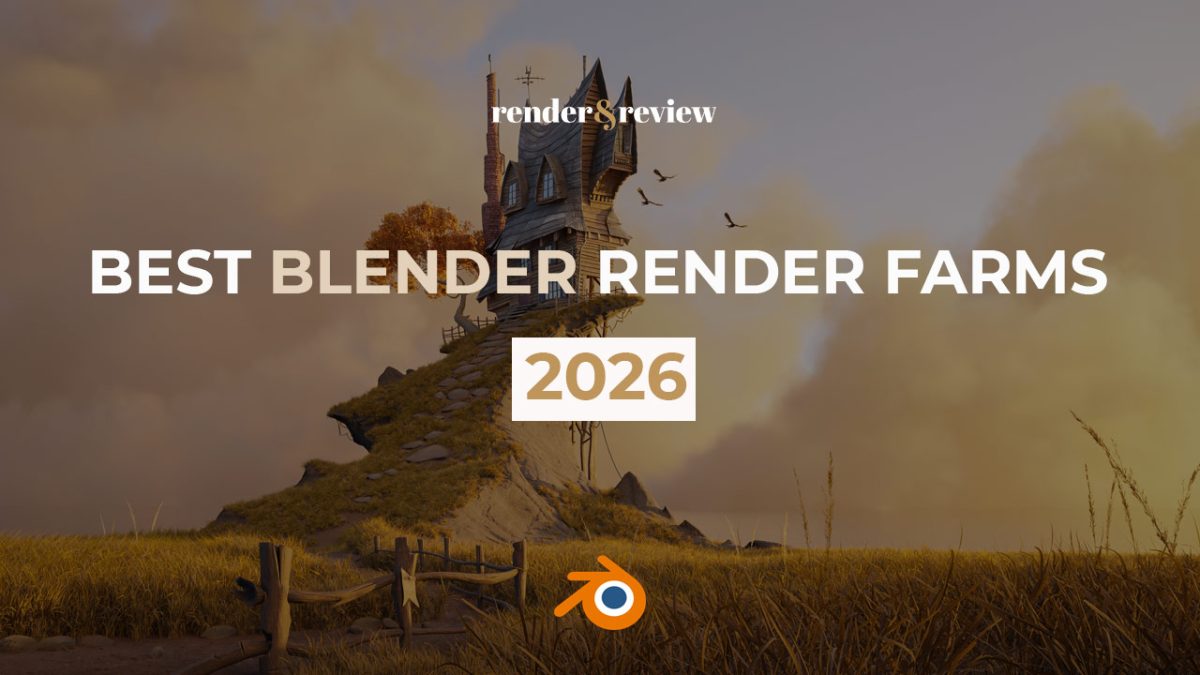

No comments